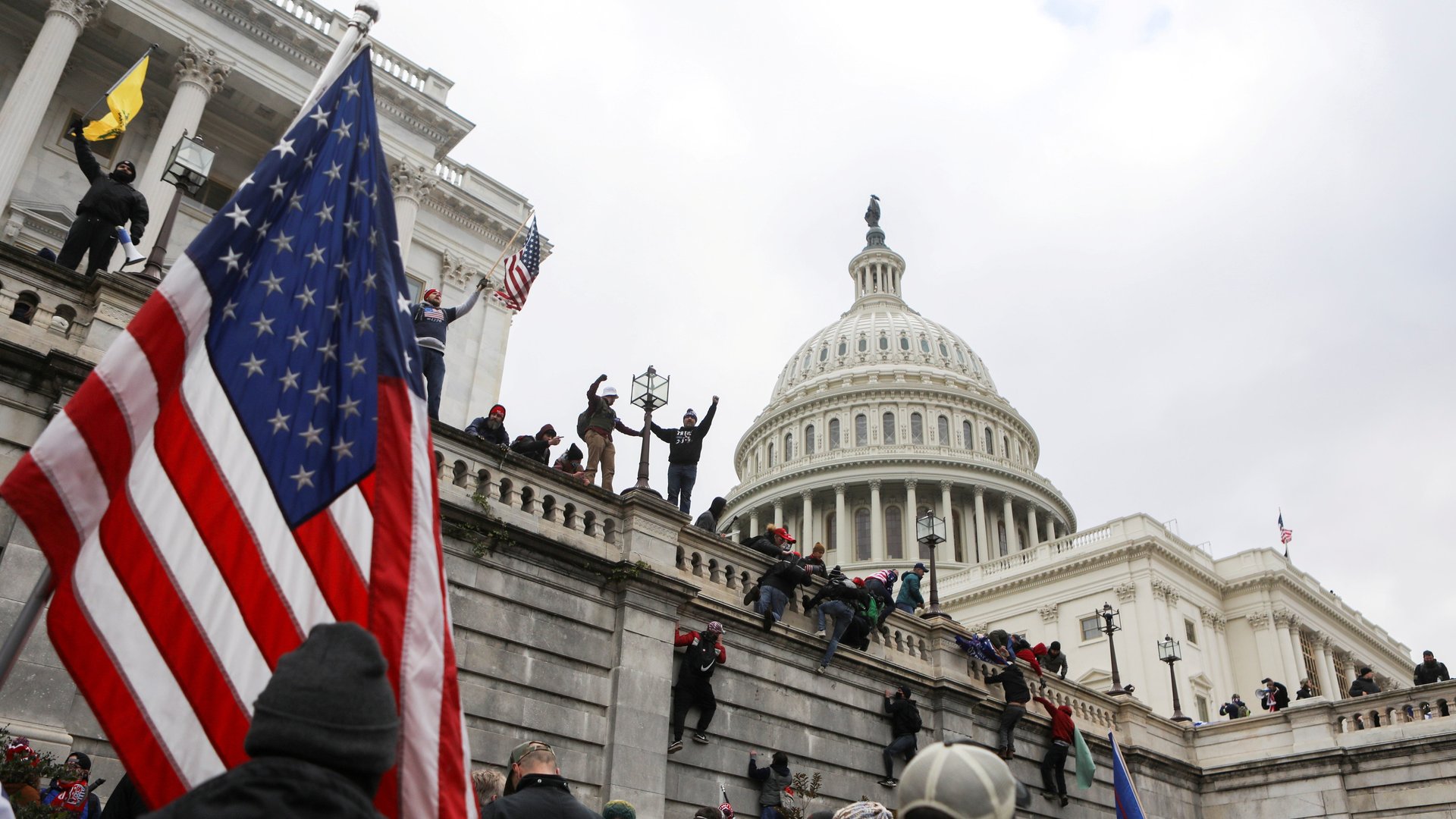Republicans courted violence at the US Capitol by ignoring this key law
It’s easy to think the mayhem of the US election will end with the departure of Donald Trump, who has been condemned by both sides of the aisle for abusing his office’s clout to sow lies about a “stolen election.”


It’s easy to think the mayhem of the US election will end with the departure of Donald Trump, who has been condemned by both sides of the aisle for abusing his office’s clout to sow lies about a “stolen election.”
Republican leaders, perhaps most notably, have been quick to lay blame, abruptly reversing months of allegiance to Trump’s cause of overturning state-certified election results. But they had ample opportunity to halt Trump’s corrosive rhetoric. Instead they chose to litigate around the truth, pretending there was a legitimate path to overturning state results when the law made clear there wasn’t.
That litigiousness is largely to blame for yesterday’s chaos in the Capitol. Republican lawmakers’ attempts to undermine the election results ignore the Electoral Count Act of 1887—which was put in place after the bungled 1876 election of Rutherford B. Hayes v. Samuel Tilden. Both claimed victory after submitting different ballot counts from three disputed Southern states. One alleged suppression of Black voters; the other claimed miscounted ballots. Both candidates capitalized on the confusion by nearly staging separate inauguration ceremonies, until the Republican Senate and Democratic House stepped in with a deal that named Republican Hayes the victor.
To prevent another such mishap, the Electoral Count Act gave governors the final say in certifying the electors from their state. The language of the law is undoubtedly arcane, but the ambiguities parsed by legal scholars are hardly applicable in this case. Those include what to do when a state’s governor certifies more than one electoral submission (for instance because of changes from an outstanding lawsuit), or if the vice president, who holds a largely ceremonial role in the vote count, tries to rule in favor of a conflicting submission.
Those ambiguities weren’t part of this election, since all 50 states certified their election results and the Supreme Court struck down Trump and his allies’ attempt to have electors removed in key battleground states. Republican Senate majority leader Mitch McConnell laid this out plainly in his address to Congress during the electoral vote count, where he chided Republican objectors for carrying on.
“Dozens of lawsuits received hearings in courtrooms all across our country. But over and over, the courts rejected these claims, including all star judges that the president himself had nominated,” he said. “Nothing before us proves illegality anywhere near the massive scale…that would have tipped the entire election. Nor can public doubt alone justify a radical break, when the doubt itself was incited without any evidence.”
The sobriety came too little, too late. His remarks landed just as thousands of enraged Trump supporters were breaching the barricades of the Capitol building. Vice president Mike Pence did no better, weighing in just before he gaveled the joint session of Congress. “It is my considered judgment that my oath to support and defend the Constitution constrains me from claiming unilateral authority to determine which electoral votes should be counted and which should not,” he wrote in a letter.
Just as in 1876, this election’s legal challenges were “an attempt to subvert the electoral process,” says Jack Beermann, a law professor at Boston University who studies presidential transitions. The Electoral Count Act was written to avoid the backlash of letting members of Congress contest election certificates. In resolving the 1876 dispute, “there was just too much uncertainty over which certificates to accept,” he says, which is why lawmakers “clearly adopted a rule to not look behind the certificates and just consider what was certified by the governor.”
Dragging nullified claims of fraud all the way to the certification ceremony was bound to be futile, but the consequences of misleading the public were brutal. The mayhem that ensued was at best a bloody insurrection, at worst an attempted coup. Fomenting that anger was an abuse of power, which Republican senator Mitt Romney rightfully pointed out during the vote count:
“The objectors have claimed they are doing so on behalf of the voters. Have an audit, they say, to satisfy the many people who believe that the election was stolen. Please! No congressional-led audit will ever convince those voters, particularly when the president will continue to claim that the election was stolen. The best way we can show respect for the voters who are upset is by telling them the truth. That is the burden, and the duty, of leadership.”
To avoid a repeat, some legal experts say the Electoral Count Act needs to be modernized to more clearly articulate the bounds of the law; others want to scrap the Electoral College altogether. But neither path would prevent feckless politicians from feigned attempts to bend the law to their will. Resisting that temptation is what distinguishes a democracy of statesmen from a ship of fools.